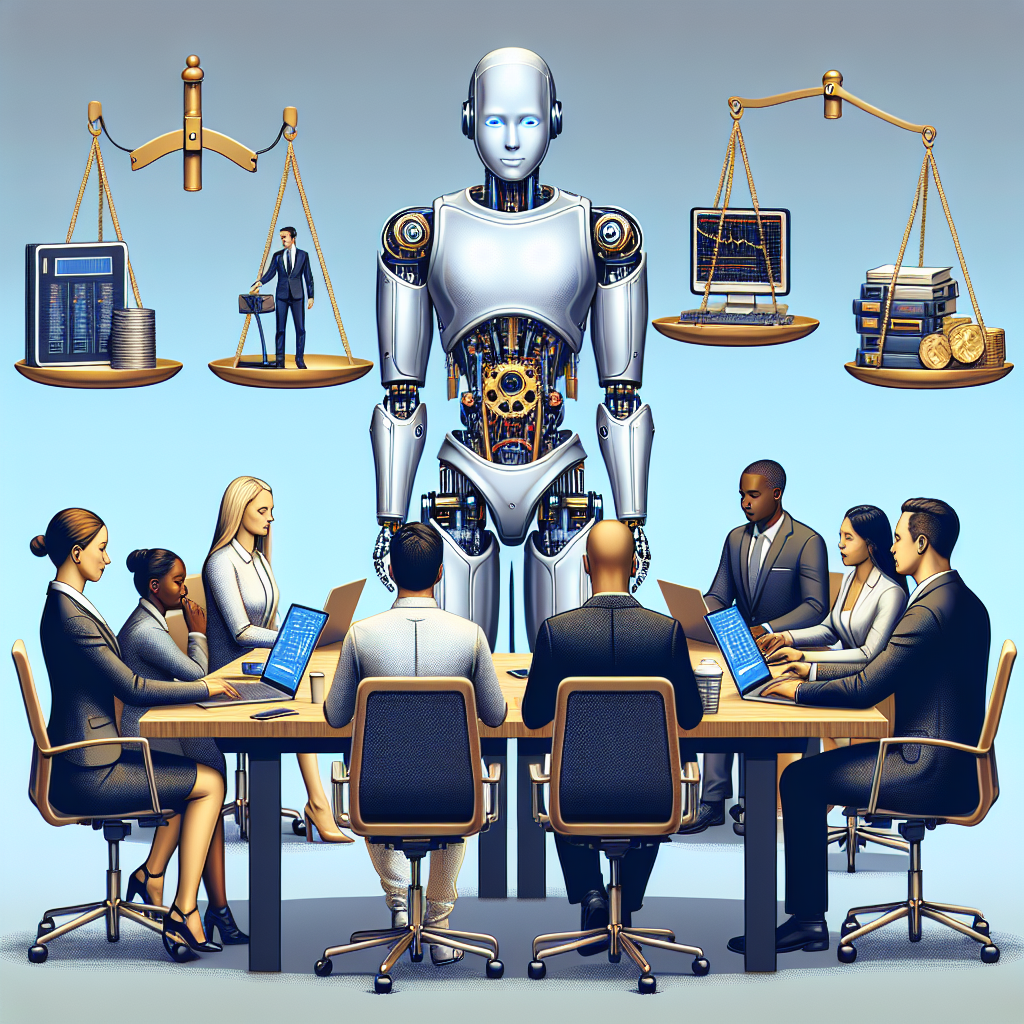As artificial intelligence (AI) continues to advance, the concept of artificial general intelligence (AGI) has become a topic of much discussion and debate. AGI refers to a form of AI that possesses human-like cognitive abilities, enabling it to perform a wide range of tasks that typically require human intelligence, such as reasoning, problem-solving, and learning. With the potential for AGI to revolutionize various industries and sectors, there is growing concern about its impact on the job market. Will automation lead to job loss or job creation? This article aims to explore this question and provide insights into the potential implications of AGI on the job market.
AGI and the Job Market: An Overview
The integration of AGI into various industries has the potential to transform the job market in profound ways. On one hand, AGI has the capacity to automate repetitive and mundane tasks, leading to increased efficiency and productivity in the workplace. This could result in the displacement of certain jobs that are routine and predictable in nature. For example, roles in manufacturing, data entry, and customer service could be at risk of being automated by AGI systems.
On the other hand, the advent of AGI could also create new job opportunities and roles that require human creativity, critical thinking, and emotional intelligence. As AGI systems become more sophisticated and capable of performing complex tasks, there will be a growing demand for individuals who can oversee, manage, and optimize these systems. Additionally, new industries and sectors may emerge as a result of AGI, creating job opportunities in areas such as AI ethics, cybersecurity, and AI consulting.
Overall, the impact of AGI on the job market is likely to be a combination of job loss and job creation. While certain roles may become obsolete due to automation, new opportunities will emerge that require unique human skills and capabilities. As such, it is essential for individuals and organizations to adapt to the changing landscape of the job market and develop the necessary skills to thrive in an AI-driven economy.
Will Automation Lead to Job Loss or Job Creation?
The question of whether automation will lead to job loss or job creation is a complex and multifaceted issue that has been the subject of much debate among economists, policymakers, and technologists. While some argue that automation will result in widespread job loss and displacement, others believe that it will lead to the creation of new job opportunities and roles.
On one hand, the automation of certain tasks and processes by AGI systems has the potential to eliminate jobs that are routine, repetitive, and predictable in nature. This could impact industries such as manufacturing, transportation, and retail, where jobs are often at risk of being automated by AI technologies. In these sectors, workers may need to reskill or upskill in order to remain relevant in the job market.
On the other hand, the integration of AGI into various industries could create new job opportunities and roles that require human skills and capabilities. For example, roles in AI research, data science, and machine learning engineering are likely to be in high demand as organizations seek to leverage AGI technologies to drive innovation and growth. Additionally, the emergence of new industries and sectors, such as AI ethics and AI consulting, could create job opportunities for individuals with specialized expertise in these areas.
Ultimately, the impact of automation on the job market will depend on a variety of factors, including the pace of technological advancement, the readiness of workers to adapt to new technologies, and the ability of policymakers to support workers through transitions. While job loss is a possibility in certain industries, job creation is also likely to occur as a result of the adoption of AGI technologies.
FAQs
Q: Will automation lead to widespread job loss?
A: While automation has the potential to eliminate certain jobs that are routine and predictable in nature, it is also likely to create new job opportunities and roles that require unique human skills and capabilities. The impact of automation on the job market will vary depending on the industry and sector.
Q: What skills will be in demand in an AI-driven economy?
A: In an AI-driven economy, skills such as data analysis, programming, critical thinking, and emotional intelligence are likely to be in high demand. Individuals who can adapt to new technologies and leverage AI systems to drive innovation and growth will be well-positioned for success in the job market.
Q: How can individuals prepare for the impact of automation on the job market?
A: To prepare for the impact of automation on the job market, individuals should focus on developing skills that are in demand in an AI-driven economy, such as data analysis, programming, and critical thinking. Additionally, lifelong learning and continuous upskilling will be essential for remaining relevant in a rapidly changing job market.

